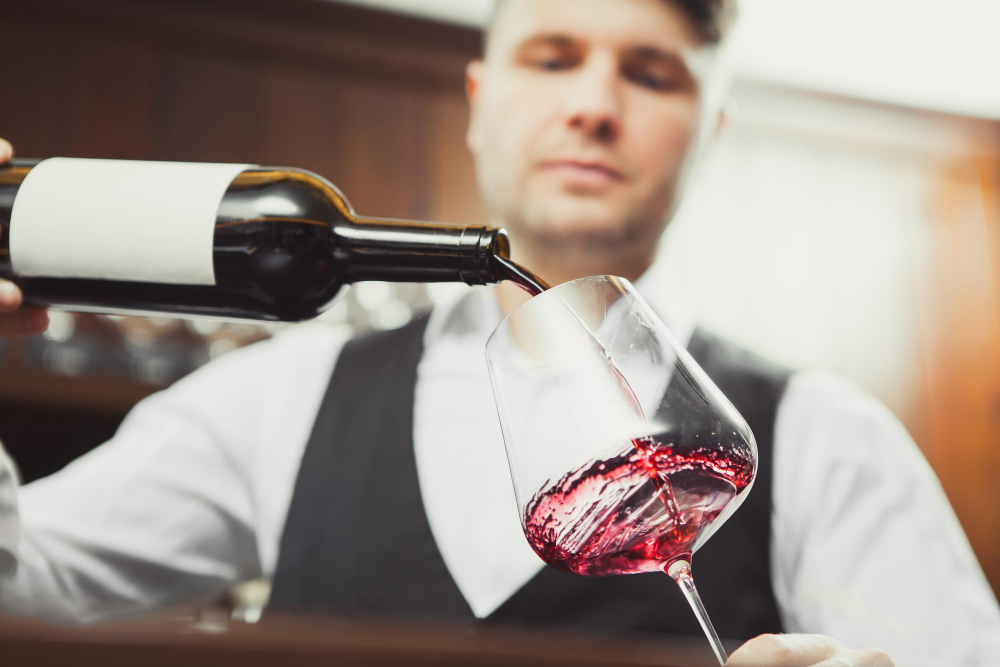Rinsing a wine glass: an essential step in the wine tasting ritual
The practice of rinsing a wine glass is a key element in elevating the wine tasting experience

In the realm of oenology, a number of practices have been established to elevate the experience of wine tasting. Among these, the custom of rinsing the wine glass, though not widely known among many consumers, plays a significant role. This article endeavors to elucidate this wine tasting ritual, delving into its underlying logic, the benefits it brings, and why it supersedes the use of water in the preparation of the glass.
Unveiling the Wine Glass Rinsing Ritual
When we speak of rinsing a wine glass in the context of wine tasting, we refer to the conditioning of the glass with a small amount of the very wine that is to be savored from it. To undertake this, a small quantity of wine is swirled around the glass to coat its interior, and then discarded. This may seem wasteful at first glance, but the actual purpose is to prepare the vessel that will hold the same wine for consumption.
The aim of rinsing a wine glass is to allow the wine to spread uniformly throughout its interior, thus ensuring the optimal tasting experience. Merely a few drops of wine are required for this process; an excess would lead to unnecessary wastage of the beverage.
This procedure is typically reserved for wines of the highest quality, often those enjoyed on special occasions. It serves to enhance the wine tasting experience and bring it to its fullest potential.
Water vs. Wine: The Case for Wine Glass Rinsing
While rinsing a wine glass is intended to elevate the wine tasting experience, a question that frequently arises is why use wine instead of water for this purpose. The reasoning behind this preference is both compelling and straightforward.
Cleaning wine glasses is a meticulous task, demanding ample time and care. Glasses need to be left to dry completely, often upside down, to ensure that no moisture remains. However, in cases of sequential wine tastings, waiting for the glass to fully dry may not be feasible.
It might come as a surprise, but water and wine are far from being good bedfellows. Even the slightest presence of water in the glass can substantially affect the wine tasting experience. A single drop of water can alter the organoleptic properties of the wine significantly.
Additionally, in many areas the quality of tap water is far from ideal. Contaminants such as lime, dust, and potential detergent residues further strengthen the case against using water for wine tasting purposes.
The Advantages of Rinsing a Wine Glass
Rinsing a wine glass is the ideal solution when there isn't enough time to properly dry the glasses, or when multiple wines are being tasted from the same glass. This technique also proves beneficial for glasses that have been stored for an extended period and may have gathered dust.
The act of rinsing readies the wine glass to receive the wine optimally, essentially familiarizing the glass with the wine while eliminating any impurities that could mar the tasting process such as dust mites, residual water, or remnants of previous wines.
Rinsing a wine glass extends beyond just cleaning. It has been shown to enhance the wine tasting experience considerably by highlighting the sensory aspects of the tasting. More specifically, it helps to reveal the aroma and flavor of the wine more fully and aids in maintaining the optimal temperature of the wine. As the glass comes in contact with the hand, the wine warms up more quickly and evenly.
In conclusion, the tradition of rinsing a wine glass is a pivotal aspect of the wine tasting experience. By gaining a deeper understanding of its significance and benefits, wine tasting can be transformed into a more profound and delightful sensory journey. Recognizing the value of rinsing a wine glass, we hope, will inspire a more holistic and enjoyable experience of wine tasting.
Founded in 2007, Vinetur® is a registered trademark of VGSC S.L. with a long history in the wine industry.
VGSC, S.L. with VAT number B70255591 is a spanish company legally registered in the Commercial Register of the city of Santiago de Compostela, with registration number: Bulletin 181, Reference 356049 in Volume 13, Page 107, Section 6, Sheet 45028, Entry 2.
Email: [email protected]
Headquarters and offices located in Vilagarcia de Arousa, Spain.